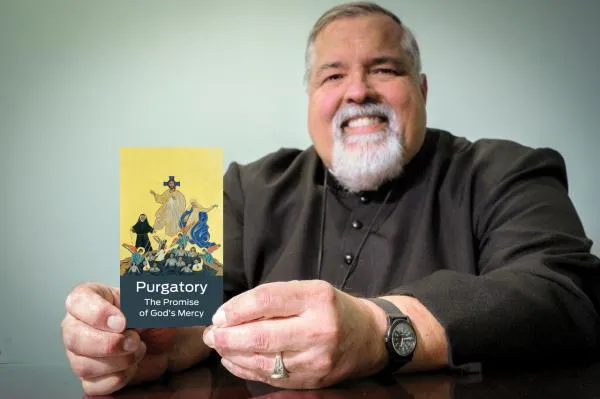Purgatory and Psalm 130

by Fr. Dan Cambra, MIC
You may recall that in the May issue of the Holy Souls Sodality newsletter, I wrote about a beautiful icon titled "Purgatory, The Promise of God's Mercy" of which we Marian Fathers recently became the custodians. The icon now hangs for public veneration in the National Shrine of The Divine Mercy here in Stockbridge, Massachusetts.
I've since created a prayer card with an image of the icon. I sent you one with a previous newsletter. You'll find an additional one included with this month's mailing, too.
Holy Souls Sodality members have been asking me why I chose to include Psalm 130 for the back of the new prayer card. Well, sit back and read on. I've got a powerful Purgatory story to share with you.
Let's roll the clock back to roughly 202-203 A.D. in the Mediterranean port city of Carthage, in northern Africa — a time and a place in which declaring one's Christianity could get you killed. And, indeed, that's what happened to a young wife and mother whom the Church knows today as St. Perpetua. Before her martyrdom, Perpetua experienced mystical visions, two of which concern Purgatory. These visions shed light upon early Christian beliefs about Purgatory and the value these early Christians placed on prayers for the dearly departed.
For that reason, I put Perpetua up there on my list of the great "Purgatory mystics" — including St. Faustina Kowalska and St. Stanislaus Papczynski, both of whom also had visions of souls in Purgatory. And like Faustina, Perpetua wrote about her experiences. In her case, she kept a diary following her arrest. Oxford University Press is among several publishers who have printed her account over the years. Oxford did so in its book The Acts of the Christian Martyrs (1972).
Perpetua was imprisoned along with four other young catechumens. Following a brief hearing, they were "condemned to die by the beasts," she wrote. And, indeed, their deaths were bloody, in a public arena, like those of so many of our early Christian martyrs.
Just before her death, her brother, Dinocrates, who had died previously from cancer of the mouth, appeared to her in a vison. Clearly, he was in Purgatory. Perpetua writes:
I saw Dinocrates going out from a gloomy place, where also there were several others, and he was parched and very thirsty, with a filthy countenance and pallid colour, and the wound on his face which he had when he died. This Dinocrates had been my brother after the flesh, seven years of age who died miserably with disease — his face being so eaten out with cancer, that his death caused repugnance to all men. For him I had made my prayer, and between him and me there was a large interval, so that neither of us could approach to the other. And moreover, in the same place where Dinocrates was, there was a pool full of water, having its brink higher than was the stature of the boy; and Dinocrates raised himself up as if to drink. And I was grieved that, although that pool held water, still, on account of the height to its brink, he could not drink. And I was aroused, and knew that my brother was in suffering.
Perpetua then describes how she prayed for Dinocrates in order to ease his suffering. Tradition holds that she prayed Psalm 130, which begins, "Out of the depths I call to you, Lord; Lord, hear my cry!" Both Jews and early Christians often turned to this penitential Psalm.
Following Perpetua's prayers, and on the night before her martyrdom, her brother again appeared to her in a vision. She writes:
I saw that that place which I had formerly observed to be in gloom was now bright; and Dinocrates, with a clean body well clad, was finding refreshment. And where there had been a wound, I saw a scar; and that pool which I had before seen, I saw now with its margin lowered even to the boy's navel. And one drew water from the pool incessantly, and upon its brink was a goblet filled with water; and Dinocrates drew near and began to drink from it, and the goblet did not fail. And when he was satisfied, he went away from the water to play joyously, after the manner of children, and I awoke. Then I understood that he was translated from the place of punishment.
There he is, in heavenly glory. Such is the power of our prayers for the Holy Souls in Purgatory. And such is the power in praying Psalm 130.
Now, knowing what you know, I implore you to put that prayer card to good use on behalf of souls in Purgatory!
Blessings,
Father Dan Cambra, MIC
Spiritual Director
of the Holy Souls Sodality
